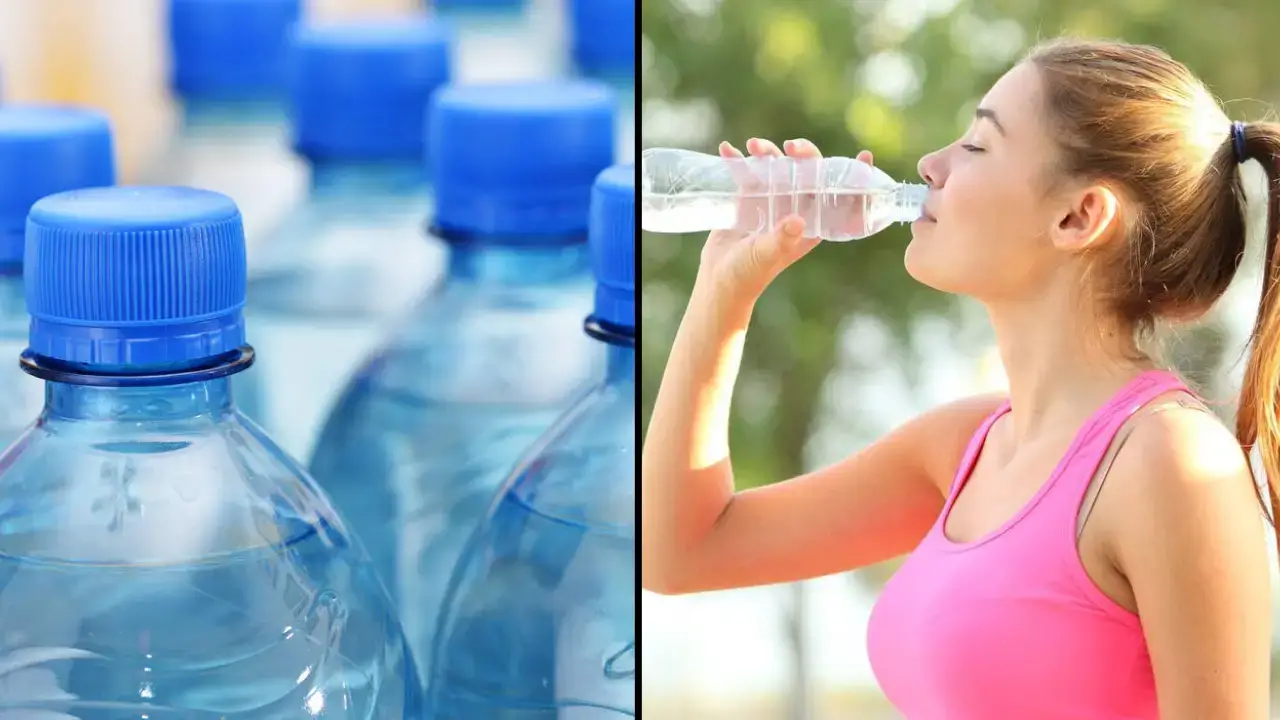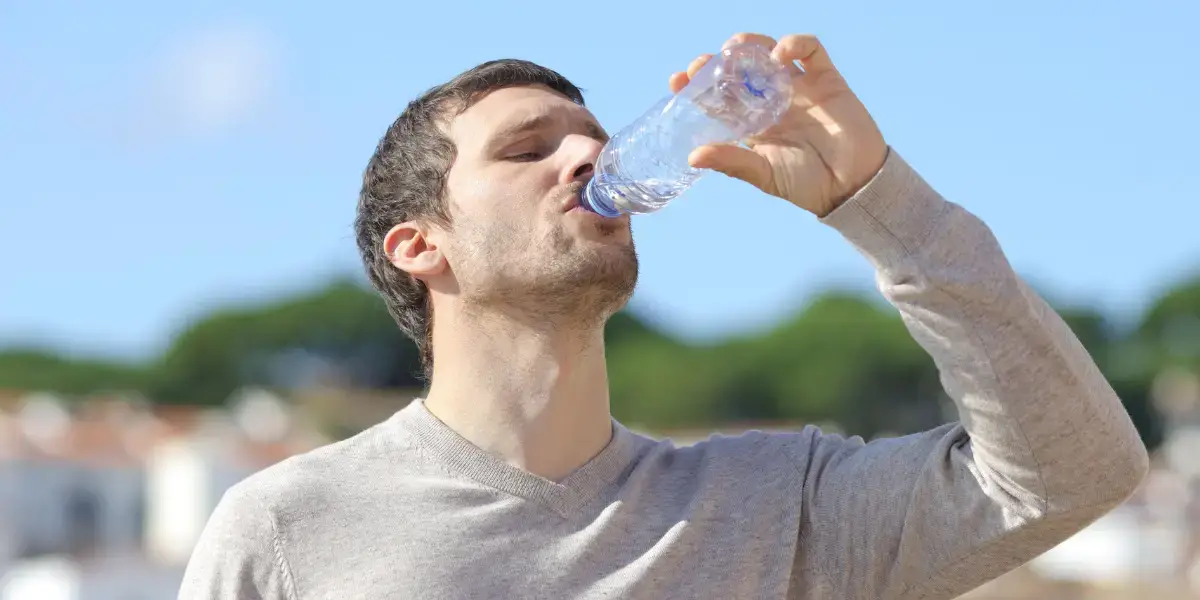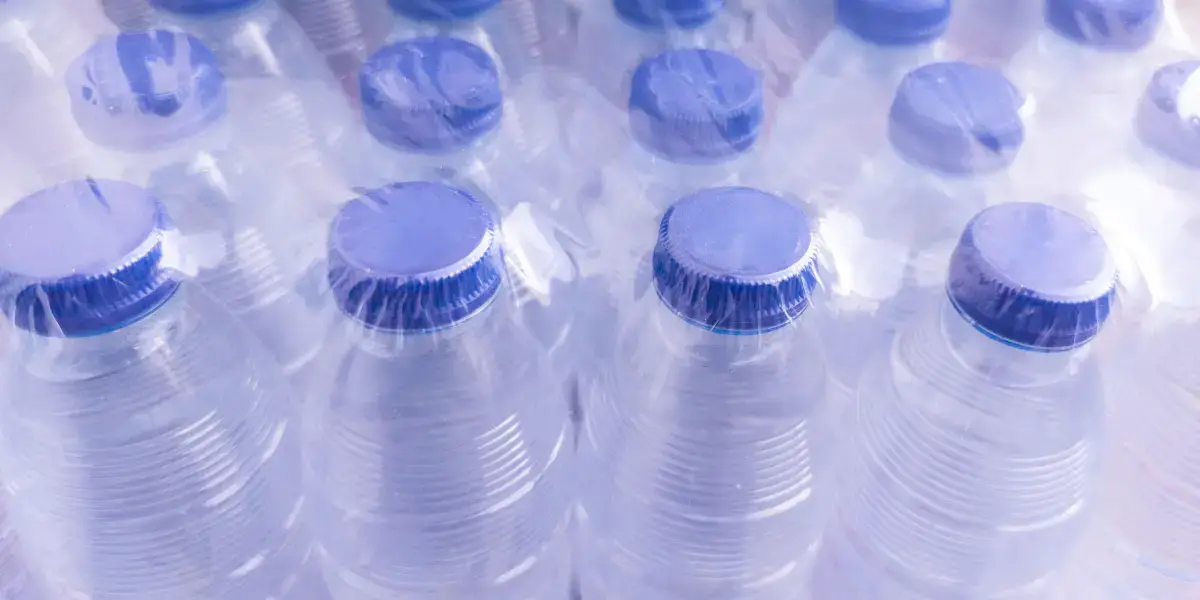
Credit: Alamy
Warning Issued To People Who Drink Bottled Water
People who drink bottled water have been issued a warning.
Water is one of the healthiest things you can drink and when you’re on the go, having it bottled is a convenient solution.
However, a stark warning has now been issued.
Related Article: What Is Chewing Gum Actually Made From?
Related Article: Doctor Warns You Should Never Sit On The Toilet For Longer Than 10 Minutes
It’s been said that we should stray away from plastic bottles as they impact the environment.
It takes 162g of oil and seven litres of water to make a single one-litre disposable PET bottle, as per Refill.
This releases 100g of carbon dioxide (CO2) – a major greenhouse gas – which means that single-use plastic bottles significantly contribute to pollution, even if they are subsequently recycled.
And now a new study, published in Proceedings of the National Academy of Sciences journal, has found that bottled water is responsible for an average of 240,000 detectable fragments of plastics per litre of water in popular brands.
Microplastics are considered to be less than five millimetres in length, while nanoplastics are defined as particles below one micrometre, as per the National Oceanic and Atmosphere Administration.

To study microplastics in bottled water, the team used a technique called Stimulated Raman Scattering (SRS) microscopy – which works by probing samples with two lasers tuned to make specific molecules appear on a computer.
They tested three popular brands, but chose not to name them, ‘because we believe all bottled water contain nanoplastics, so singling out three popular brands could be considered unfair’, said Beizhan Yan, the co-author of the study, via Yahoo.
The results showed between 110,000 to 370,000 particles per litre, 90 per cent of which were nanoplastics, while the rest were microplastics.

The most common type was nylon – which most likely comes from plastic filters used to purify the water – followed by polyethene terephthalate (PET), which is what bottles themselves are made from.
Other types of plastic enter the water when the cap is opened and closed.
At the time of writing, there has been little research on how nanoplastics affect human health.
“If people are concerned about nanoplastics in bottled water, it’s reasonable to consider alternatives like tap water,” Yan told AFP.
“We do not advise against drinking bottled water when necessary, as the risk of dehydration can outweigh the potential impacts of nanoplastics exposure.”
Related Article: Expert Issues Warning Over ‘Snus’ As It Becomes More Popular Than Vaping
Related Article: Vet Explains Why You Should Never Flush Your Dog Or Cat’s Poop Down The Toilet
He added that the team is hoping to conduct the same experiment on tap water in the future to check for plastics.
Dick Vethaak, a professor of environment and health at VU University Amsterdam in the Netherlands, tells Business Insider that some of these plastics are so small they can pass through the lungs and intestines.
There have even been cases of microplastics crossing the placenta into the bodies of unborn babies, as per the National Library of Medicine.